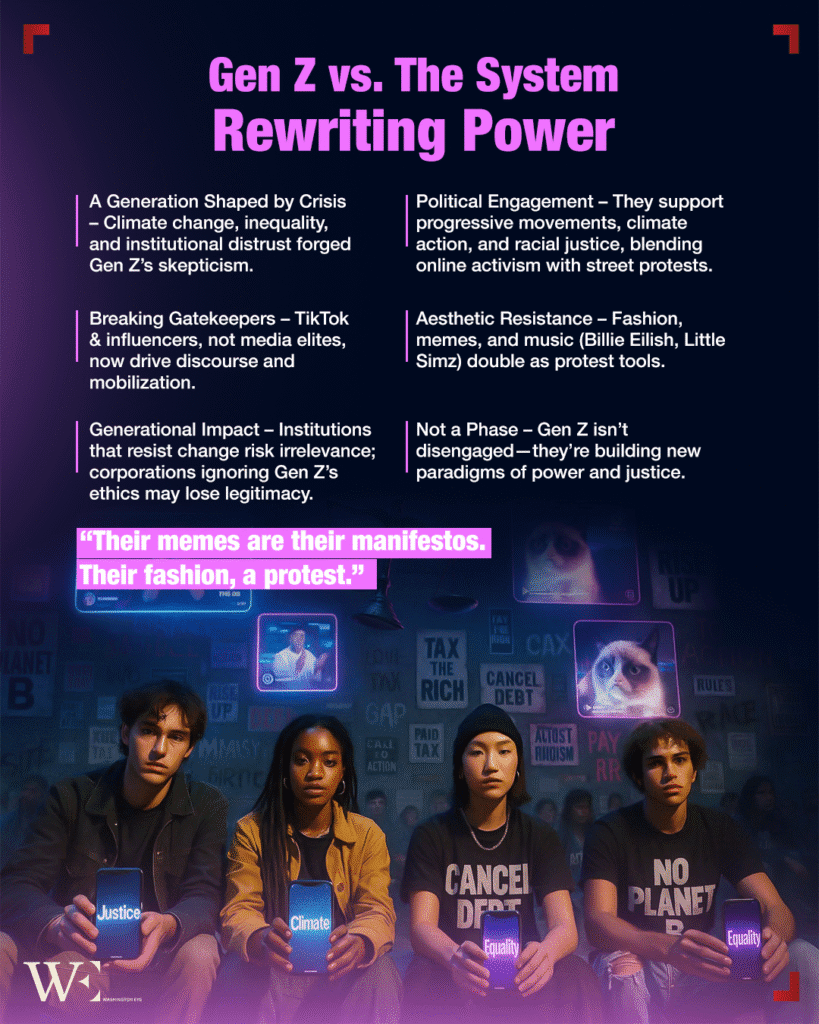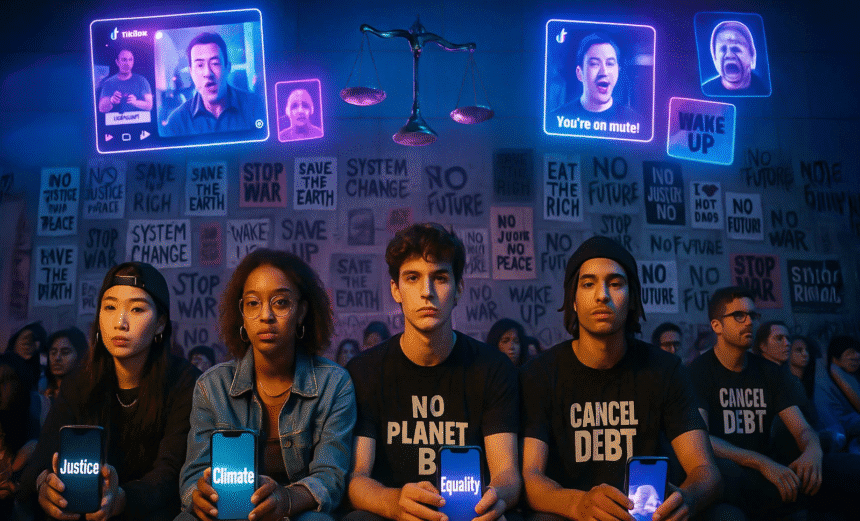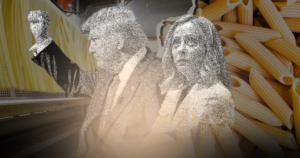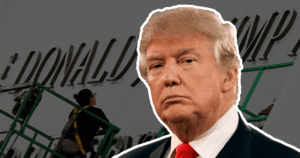Generation Z, born roughly between the mid-1990s and early 2010s, is evidently not tweaking the system, they are reimagining it altogether. From political engagement to cultural rebellion, Gen Z is responding to the crises they inherited with a form of activism that is confrontational, creative, and often unfiltered. Raised in a time of global disruption, from climate disasters to economic precarity, this generation is rewriting the rules of power, influence, and change.
A Generation Forged in Crisis
Unlike previous generations, Gen Z came of age amidst what seemed like a constant unraveling of global stability. The 2008 financial collapse, worsening climate change, widening income inequality, and a steady erosion of public trust in institutions shaped their worldviews early on. According to the Deccan Herald, this generation internalized a sense of instability as normal, prompting a deep skepticism of inherited systems of governance, culture, and corporate power.
This generational identity is also being expressed politically. Gen Z voters are more likely than their predecessors to support progressive and anti-establishment movements. For instance, in the United States, Gen Z overwhelmingly supported candidates who advocate for climate action, debt relief, and racial justice during the 2020 and 2022 elections. Their engagement is not just electoral; it is also cultural, expressed through protests, boycotts, and social media-driven activism that questions the legitimacy of traditional authorities.
The Collapse of Traditional Gatekeeping
One of the most disruptive characteristics of Gen Z is their refusal to recognize traditional gatekeepers of culture and politics. Influencers, not political elites or corporate media, are now primary sources of information and authority. Platforms like TikTok have replaced newsrooms and editorial boards as the origin points for public discourse. This decentralization has enabled voices that were previously sidelined to speak and organize at scale.
This democratization of influence comes with both promise and peril. On one hand, it allows for a more inclusive conversation, amplifying issues like mental health and economic justice. On the other hand, the algorithmic structure of these platforms creates echo chambers and enables disinformation to spread rapidly. Nonetheless, Gen Z appears willing to navigate this terrain in order to dismantle what they see as outdated and exclusionary institutions.
The Aesthetics of Rebellion
Gen Z’s political resistance is deeply intertwined with aesthetics. Unlike previous generations that often separated political messaging from cultural expression, Gen Z merges the two seamlessly. Their memes are their manifestos. Fashion choices double as protest statements. Music and art are loaded with critiques of capitalism, climate inaction, and systemic oppression.
Artists like Billie Eilish, Little Simz, and Arlo Parks channel personal trauma and collective disillusionment into creative output that resonates globally. This generation translates “local fury into global anthems”, using personal storytelling as a political act, according to Deccan Herald. The boundaries between the personal and political have all but vanished in Gen Z’s cultural expression, creating a potent mix of vulnerability and resistance that challenges older norms of stoicism and detachment in public life.
The Implications of a Generational Overhaul
The transformations led by Gen Z are not without backlash. Older generations often interpret their defiance as apathy, their digital fluency as narcissism, and their rejection of traditional work norms as laziness. But these critiques miss the broader shift underway. Gen Z is not disengaged. They are disillusioned and are choosing to build new paradigms rather than renovate broken ones.
What this suggests for the future is profound. As Gen Z enters the workforce, government, and leadership roles, they are likely to challenge entrenched systems not with incremental reform but with demands for structural change. Institutions that fail to adapt may find themselves irrelevant. Corporations that ignore Gen Z’s ethical expectations, on climate, diversity, and labor, risk losing their social license to operate.
A Final Note: Not Just a Phase
Gen Z is not merely rebellious youth going through a phase of angst. They represent a tectonic cultural shift. Whether through their politics, aesthetics, or forms of protest, they are actively disassembling the old order to construct something new. What that new order will look like is still emerging, but one thing is clear: it will be shaped on their terms.

















